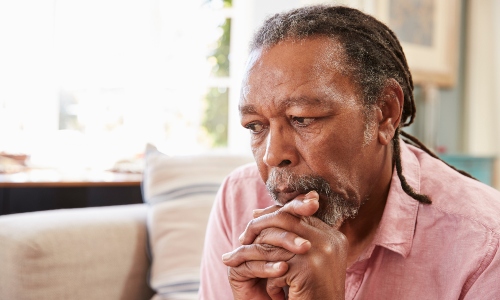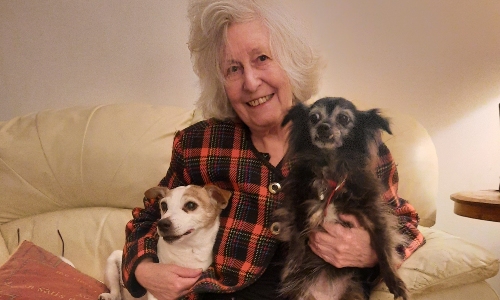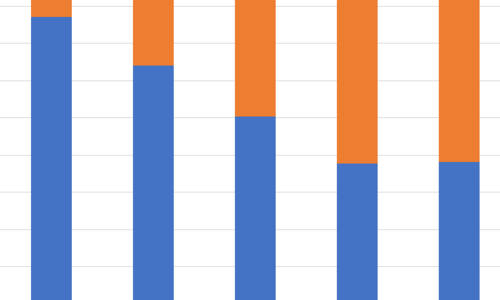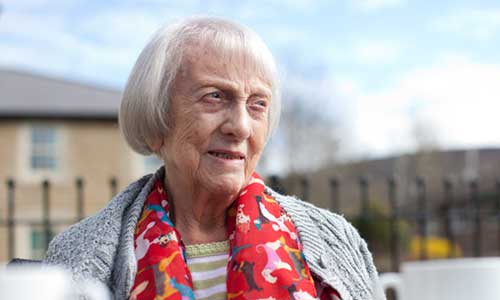Over the past three years, Age UK has conducted six pieces of research into older people’s health and care.
Initially, this focused on the impact of the COVID-19 pandemic, which revealed how much older people were struggling with accessing healthcare, taking part in community life and caring for others. This had a huge impact on both physical and mental health, as older people were unable to get the care and support they needed.
Sadly, there are still many older people in the same situation now. While our research has moved away from focusing on the pandemic, we are still hearing about difficulties in accessing health and social care and support, with many older people still feeling cut off and isolated. These challenges are only made worse by the impact of increases in the cost of living. Older people are struggling financially in a way that they never expected to be at this point in their lives. Many made difficult choices to cut back on heating and food last winter and expected to be doing the same this winter.
To capture more of these findings, in our most recent research conducted in September 2023, we included accounts from people aged 50 years and over for the first time. The results included in this report highlight that, in many areas, people aged 50-59 years are having a particularly hard time, and they too are finding it incredibly difficult to manage the onset of multiple health conditions and their ongoing care responsibilities.
Key findings
-
Around 1 in 6 people aged 50 and over said they were providing care to someone else.
-
Almost a third said their health had got worse in the past 12 months.
-
Less than half (48%) were confident that any medical problem they had would be dealt with by the NHS.
-
More than a quarter (26%) rarely or never leave their home for social activities.
- Three quarters (75%) have already been turning down or turning off the heating to cope with the cost of living.
Caring for others
Around 1 in 6 people aged 50 and over said that they were providing care to someone else. This figure was even higher for women, those aged 50-59, and people living with long-term conditions.
More than a third of respondents (34%) expected the amount of caring they provided to increase, and 1 in 5 (20%) were worried about being able to continue providing care.
Added to this, almost 3 in 5 (57%) felt tired, almost half (48%) felt anxious, more than a third (34%) felt overwhelmed – with more than one in five (21%) feeling lonely.
Physical health
As this was the first time we had included people aged 50-59 in our research, we were struck by how much this age group was struggling with their health.
Almost a third of people aged 50 and over said that their health had got worse in the past 12 months, and almost 3 in 5 (58%) were not confident that their health would improve in future.
Reasons given for this included existing health conditions getting worse, being diagnosed with a new health condition, being unable to access appointments, waiting for treatment, bereavement and caring responsibilities.
Access to NHS services and social care
Our findings revealed that less than half (48%) of people aged 50 and over were confident that any medical problem that they had would be dealt with by the NHS.
The primary concerns for people were that they were unable to see their GP in person, difficulties with accessing appointments in primary and secondary care, not being able to navigate online access to healthcare, and poor follow up. 1 in 4 respondents were waiting for NHS referral, diagnosis, or treatment – some for well over a year.
As well as this, almost 1 in 5 (19%) were concerned about their ability to access a homecare worker or carer. They told us about the challenges of being able to find any carers in the first place, as well as problems with inconsistent support and frequent changes of staff. The cost of care was also a barrier for some, with around 2 in 11 (18%) having reduced or stopped the care they received.
We have free resources available
Our website has a host of public resources available that can be used to signpost people to the support they need.
Community life and social contact
According to our research, more than a quarter (26%) of people aged 50 and over are rarely or never leaving their homes for social activities, and 1 in 8 (13%) rarely or never have social contact with others over the phone or online.
One in 12 said that they were often or always lonely. The figure was higher for people aged 50-64, those who were more disadvantaged, people with long-term conditions, and unpaid carers. Respondents frequently talked about different types of loss – through bereavement, retirement, reduced social activity, and loss of their identity.
Concern about winter
Our report found that people aged 50 and over were also worried about how the cost of living would affect them this winter. Specific worries included not being able to heat their home enough, not being able to eat enough, not being able to afford care and support or the clothes that they need.
More than half (52%) were worried about very cold weather, and three quarters (75%) had already been turning down or turning off the heating. Many people told us that they would be spending time in bed, wearing extra layers of clothing and blankets to keep warm. Some said they would try and stay active or use warm spaces away from home. Others told us that they had no idea how they would manage.
Moving forward
As daily life remains tough for so many, Age UK continues to raise the issues in our new report with the Government, NHS and other organisations. We have noted how the 50-59 age group is struggling on many different fronts and we will push for this demographic to be given more policy attention.
Read the full report
Learn more about our findings in our latest report, 'We have to take it one day at a time'.





